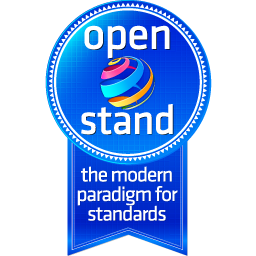mount & fstab
| mkdir /mnt/shares/srv03-bkp-joomla | |||
| apt install -y cifs-utils | |||
| mount.cifs //192.168.1.107/share1/ /mnt/shares/srv03-bkp-joomla/ -o user=user1,pass=user1password | |||
| fstab | //192.168.1.129/share1 /mnt/shares/srv03-bkp-joomla cifs username=user1,password=user1password 0 0 | ||
| from=$1 to=$2 rsync -zarv --prune-empty-dirs --include "*/" --include="*.sh" --exclude="*" "$from" "$to" |
Mounting the Share in Linux 1. On your Linux machine, open terminal.
- Make sure you have the nfs-common package installed. To do this in Unbuntu:
sudo apt-get install nfs-common
- Otherwise, consult your system documentation or package manger for more info.
- To mount an NFS, you first have to create the folder to which you want it to mount. Type this to create a directory:
sudo mkdir /mnt/<insertfoldername>
- Now, once that is created, you can mount the share. Type:
sudo mount -t nfs4 <IP Address>:/<DriveVolumeName>/<NameofShare> /mnt/<FolderyouCreated>
- What all this means:
- -t : Is used to tell the system that this is just an ordinary mount command. You use this when you do not have the drive information located in /etc/fstab
- nfs : Tells the type of share you are trying to mount.
- <IP Address>:/ : IP address of the drive you are trying to mount.
- <DriveVolumeName>/ : Volume Name of the actual hard drive that you want to mount. This defaults to DataVolume.
- <NameofShare> : The Share within the Volume of the hard drive that you want to mount.
- /mnt/<FolderyouCreated> : The location to which you want your share to be mounted. Remember that it is the folder that you already created.
- Note: This will not create a shortcut on your desktop, nor will it show up in Computer. You will have to browse to the location of the folder. Normally this will be in Computer, under Filesystem and then mnt.
For example:
sudo mount -t nfs4 192.168.10.204:/DataVolume/Public /mnt/Public
or
Sudo mount -t 192.168.0.1:/NASShare /mnt/NAS nfs username=administrator,password=pass 0 0
Source/Quellen:
- Mounting the Share in Linux
-
-
-
-
-
-
-
Source
- Anker 575 USB-C Docking Station (13-in-1), 85W für Laptops
- Perfect Server Hardware for Virtualization | Proxmox | pve-05
- Pioneer Blu-Ray/BD/DVD/CD Reader/writer USB 3.0 BDR-XD07TB | WORKS OK with Debian 11
- NOT WORKING WITH DEBIAN 11 | Dockingstation | IcyBox 14-in-1 USB Type-C | IB-DK2262AC
- How to remove systemd services
- Laptop | Lenovo | Thinkpad E15 Gen3 AMD
- Laptop | Lenovo | LENOVO-IDEA IdeaPad 3 15IGL05 Notebook (15.6 ", 128 GB SSD, Business Black)
- D. Klimo | Kent monoblocks
- TTN Mapper
- LILYGO TTGO T-Beam V1.1 ESP32 LoRa 868Mhz GPS 18650 Board
- LILYGO® TTGO T-Beam 868MHz -> The Things Network (TTN/TTS) -> Karte | Infos und Video bei Alex (www.aeq-web.com)
- Kabelfarben 3.3V, 5V, 12V, 230V | Durchmesser
- 01 Digi-Bee Stand01 Wetter
- Solar Panel | 6V 3W Solar Panel JY D145x145
- TTGO LoRa32 V2.1_1.6 version 433/868/915Mhz ESP32 LoRa OLED 0.96 Inch SD Card Bluetooth WIFI wireless Module ESP-32 SMA
- -pve-04 | Disk SSD and HDD
- DISK SSD | 1 TB | Samsung SSD 870 EVO 1TB - 1TB
- NanoVNA V2
- CubeSat | antennas |
- KoZo_GS3_433MHz
- tinyGS - shortcut what it means
- TinyGS Telegram community | published Links
- Wolfgang W. Osterhage (Springer Verlag Sachbuch 2021): Die Geschichte der Raumfahrt | (gefundene Fehler)
- ucs Univention some commands
- SMA-Stecker / SMA-Buchse

 Die Datenintegrationsplattform IBM InfoSphere Information Server ist verwundbar. Die Entwickler haben mehrere Sicherheitslücken geschlossen.
Die Datenintegrationsplattform IBM InfoSphere Information Server ist verwundbar. Die Entwickler haben mehrere Sicherheitslücken geschlossen.
 Seit Anfang Januar sind Angriffe auf Ivantis ICS bekannt. Die CISA hat die Malware analysiert, die Angreifer installiert haben.
Seit Anfang Januar sind Angriffe auf Ivantis ICS bekannt. Die CISA hat die Malware analysiert, die Angreifer installiert haben.
 Mehrere Schwachstellen bedrohen die Softwareentwicklungsplattform Gitlab. Gegen mögliche Attacken gerüstete Versionen stehen zum Download.
Mehrere Schwachstellen bedrohen die Softwareentwicklungsplattform Gitlab. Gegen mögliche Attacken gerüstete Versionen stehen zum Download.








